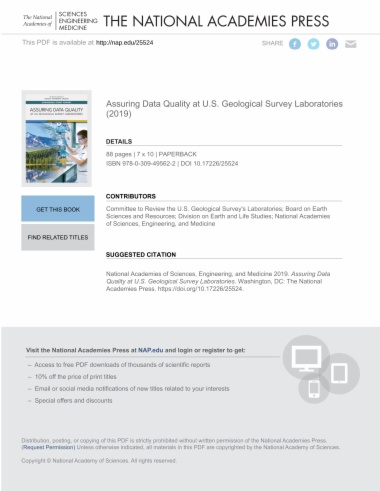

The U.S. Geological Survey (USGS) mission is to provide reliable and impartial scientific information to understand Earth, minimize loss of life and property from natural disasters, and manage water, biological, energy, and mineral resources. Data collection, analysis, interpretation, and dissemination are central to everything the USGS does. Among other activities, the USGS operates some 250 laboratories across the country to analyze physical and biological samples, including water, sediment, rock, plants, invertebrates, fish, and wildlife. The data generated in the laboratories help answer pressing scientific and societal questions or support regulation, resource management, or commercial applications.
At the request of the USGS, this study reviews a representative sample of USGS laboratories to examine quality management systems and other approaches for assuring the quality of laboratory results and recommends best practices and procedures for USGS laboratories.